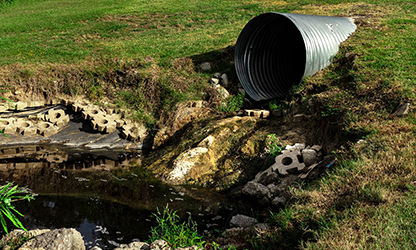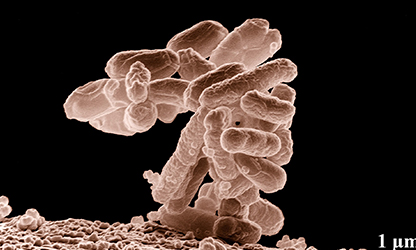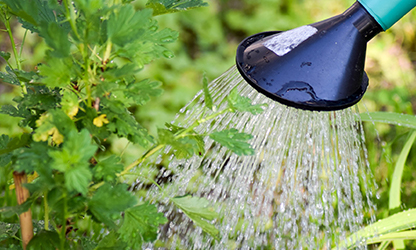Unsure of causes and don’t want to contribute to the detrimental effects of water pollution? Knowing what water pollution is, the causes, and how to take action will help you live a healthier life and help the planet.

powi.ca gathered information about what water pollution is, its types, health concerns, and how you can help stop it.
What is Water Pollution?
Water pollution is the contamination of water bodies. Typically, a water body will become contaminated through human activities, negatively affecting its intended uses. Such water bodies include lakes, reservoirs, rivers, oceans, aquifers, and groundwater. Water pollution is the result of contaminants being introduced into these water bodies.
Note: The World Health Organization (WHO) states that polluted water is water that’s composition has been altered to the extent that it is unusable.
What Causes Water Pollution?
Sometimes, water pollution can occur naturally (mercury released from the Earth’s crust). However, by far, the most common cause of declining water quality occurs due to human activity. Consider the following:
- Deforestation
- Industry, Agriculture, and Livestock
- Trash and Sewage Dumping
- Fossil Fuel Spillages/Accidents
- Maritime Traffic
- Global Warming
While substantial global progress has been made to increase clean drinking water and sanitation access to the world’s population, billions still lack these essential services.
According to the United Nations, “One in three people do not have access to safe drinking water, two out of five people do not have a basic hand-washing facility with soap and water, and more than 673 million people still practice open defecation.”
Note: The UN further states that over 80% of the world’s untreated sewage water finds its way into water bodies.
Consequences of Water Pollution

Multiple diseases are caused by consuming poor quality drinking water, and 80% of diseases and 50% of child deaths are related to poor drinking water quality worldwide. Water pollution can also cause diarrhea, skin afflictions/diseases, malnutrition, and cancer. Diseases transmitted by contaminated water include:
- Cholera
- Giardia
- Typhoid fever
Note: According to the Centers for Disease Control and Prevention, Giardia is a tiny parasite that causes giardiasis (diarrheal disease). Giardia is found on surfaces, in soil, food, or water contaminated animal feces and people. Bewarem, as the way you contract giardiasis is by swallowing Giardia germs.
What is Eutrophication?
When water pollution causes the proliferation of algae in a body of water, the introduction of nutrients stimulates the growth of plants and algae, which significantly reduce oxygen levels in the water. This severe oxygen reduction, known as eutrophication, suffocates all plant life and wildlife, creating ‘dead zones’ where water is deprived of life. These harmful algae can also produce neurotoxins that adversely affect or kill wildlife.
Why Prevent Water Pollution?
Our blue planet is one of water, and no species can survive without it. That said, water is a limited resource. Consider that:
- Only 2.5% of the planet’s water is freshwater
- Of which 69% is found in glaciers and ice
- 30% in groundwater
- 0.7% as permafrost
- 0.3% in lakes and rivers (principal source for human consumption)
Note: The rapid degradation of water quality and its contamination means the amount of water available for human use and consumption is becoming scarcer.
Ways to Prevent Water Pollution
More efficient and cleaner water use begins with individuals at home and in the workplace. Heating and pumping water require chemicals and energy. When we waste less water, we conserve fuel and reduce the pollution generated by burning fossil fuel and treating water with chemicals. The following will help you do your part in preventing water pollution:
1. In The Bathroom
- When you buy a new toilet, purchase a low flow model (1.6 gallons or less per flush)
- Check your toilet for leaks by placing food coloring in the tank and watching for leaks in the bowl
- Turn off the water while brushing teeth and shaving
- Install water-efficient showerheads
- Take shorter showers, and draw less bathwater
Tip: Have your plumbing and sewage lines inspected annually for leaks.
2. In The Kitchen and Laundry Room
- Prevent harsh chemicals (including cleaning products) from entering sink drains or trash receptacles
- Compost food scraps (avoid using your sink’s garbage disposal) Keep at least a gallon of fresh drinking water in your refrigerator rather than running the faucet for cold water
- Only operate your washing machine with a full load of clothes. Wash using warm water instead of hot, rinse using cold water instead of warm, wash with cold water whenever possible, and hang your clean clothes out to sundry if you have the space
Tip: For more reading on high-efficiency appliances and water conservation, read this guide.
3. In Your Yard and Landscape

- Wash your car less frequently or wash it at a car wash (they clean and recycle the water). If you insist on washing your car at home, use a bucket instead of running the hose and use only eco-friendly cleaning products
- Install an irrigation timer on your watering system
- Install a drip-irrigation water system Use native or drought-tolerant plants and grasses and use hardscapes to reduce grass-covered areas
- Limit watering times to evenings or early mornings to minimize evaporation
- Install porous pavement or gravel alternatives instead of asphalt. This allows more rain to recharge groundwater supplies
Tip: Hire a trusted landscaper to professionally care for your yard and its water system.
Water Pollution Solution
In this article, you discovered essential information and definitions about water pollution, its causes, consequences, and what you can do to prevent it.
Knowing what actions can prevent water pollution will keep you from adding to the global reduction of usable water and help you educate others to do the same.
Ignoring the cataclysmic effects of water pollution will have you risking your health, loved ones, and future generations – as clean water becomes less available.
Sources:
un.org/sustainabledevelopment/water-and-sanitation/
epa.gov/p2/pollution-prevention-tips-water-conservation
cdc.gov/healthywater/other/agricultural/contamination.html
who.int/news-room/fact-sheets/detail/drinking-water

